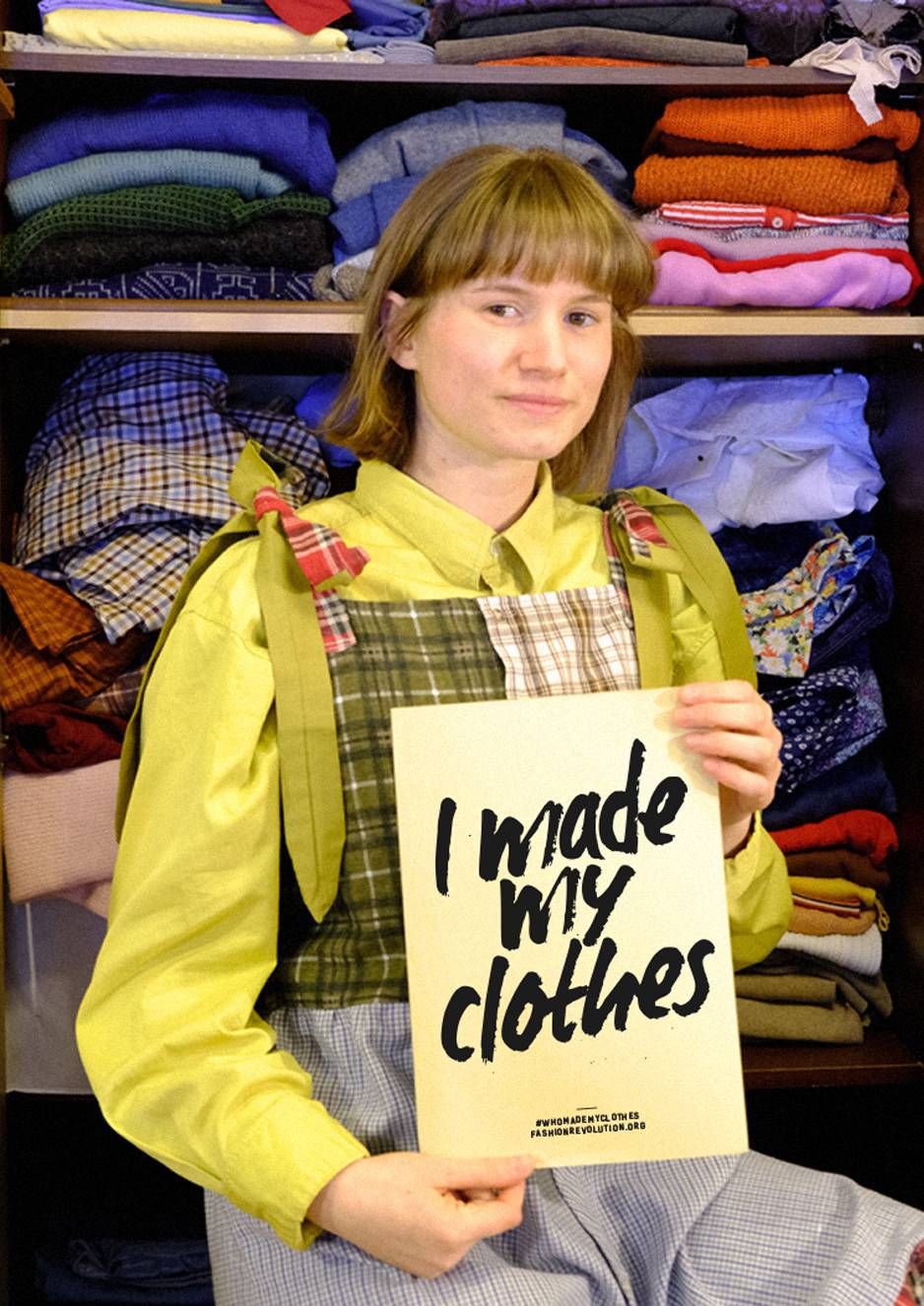Today I’m continuing my last blog where I wrote about The Fashion Revolution movement, because I didn’t want to make that one too long. Furthermore you can read about how you can think critically of the fast fashion and the consumption of things and I also pointed out some ways how you can change your shopping habits.
*Sometimes individuals may feel small and think to oneself that nothing can be changed, or ‘‘clothes are already produced, why wouldn’t I buy them? They will go into destruction if I don’t buy them.’’ Or ‘‘it’s only 5 EUR, rather I buy it than the landfills get it.’’ You don’t really need it, but you buy it because it’s cheap and because you are ‘‘saving’’ landiflls that way??
We forget many times that by buying fast fashion items we are actually voting and supporting the system that does bad to the people, animals, environment. And with consumers buying, they will keep producing. Do you really want that?
The same goes with any other industry - what you buy is what you support. But I know it shouldn’t all be on consumers shoulders; governments play a big role in this too.
I understand that some or most people can’t afford to buy from more sustainable and transparent brands, since their production and products cost more. But do they really? If you think of all the people involved in the process of creating an item and them being paid fair? Who is really the one not being paid at all for the work?
I think the problem is consumers getting used to the cycle of buying low-priced items, not treating them correctly (too many wash cycles, too high temperatures when washing, machine drying …) so they get worned out pretty fast, then throwing them away and buying new again. Or just storing them in the closet. And there is also this social urge to follow trends that change really fast and encourage you to consume more and more - here you can watch a 20 min short video Story of Stuff.. (Yes this is also one very prudent corporation strategy). And it’s also hard to think of the problems on the other side of the world if you have your own problems, but the problems on the other side of the world still affect us more than one might think.
The world is not perfect and fair, don’t know if it ever will be & and we also are not perfect, but we can work towards improving, can’t we? Small steps count.
HOW CAN YOU HELP?
So my first advice is just to reduce the shopping and care for the clothes you already own with respect as if they are the best brand you can imagine.
When you wish to have something ‘’new’’ avoid impulsive shopping and rather ask your friends if you can borrow some clothes or if they want to swap some. It’s always fun to hang with your friends!
If you live in a bigger town, maybe there are some local thrift exchange events you can take part in and exchange your clothes that you don’t wear anymore but are perfectly fine.
Or if you feel like being crafty – there are plenty of tutorials and DIY ideas on Youtube and Pinterest on how you can refresh your already owned clothes. You’ll see how good you will feel afterwards when you will be able to say to yourself: ‘‘I did this! Even if it’s not perfect, it’s my little piece of art.’’
Or you can write to me and I will gladly help you to transform your preloved clothing into new pieces by repairing them creatively.
If you really want something ‘’new’’ you can also check in with second hand stores; you can find real gems there. There are some second hand and vintage stores by lovely humans in Slovenia that you can contact and shop from (I’ll just note some here: Reinkarmika, Cats’n’clothes, Pulz Second Hand & Ana Morena Vintage.
*Curryandlove has a highlight section on her IG profile with more second hand stores in Slovenia. And she also did a great YT video about clothes and her habits towards them.
Or if you are looking for something specific and can’t get it in the previous mentioned ways, do the research and invest in something high-quality that will last.
*Mateja Kordič has a list of sustainable brands and shops (from clothes to other items) from all over the world on her blog.
And I invite you to join me on this journey for a brighter future.Obleka naredi človeka (clothes make the man) is a slovenian project that stands for environment and people friendly fashion. With Ekologi brez meja, Pravična trgovina Slovenija & Focus they also did a survey about (waste) clothes in Slovenia, where they were interested in knowing our shopping habits and attitude towards clothes. They are sharing their findings on their IG and FB profile. They also host people from the textile & clothing industry where they discuss different topics.
How to join? Wear second hand or reworked clothing; take a picture and post it on your IG/FB. Tag @oblekanaredicloveka and #DanVRabljenihOblačilih. They also encourage you to share the story behind your chosen clothes; because you know – we all are carrying stories, let’s create some memories together.
If you have any other advice or just want to talk to me about the topic I’ll be happy to chat - I’ll be most glad if you contact me via instagram DM.
With love, Morja






